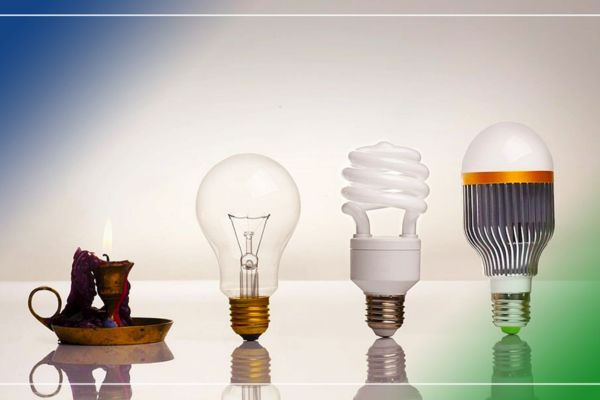Introduction
LED light strips, also known as LED tape lights or ribbon lights, have revolutionized the lighting industry with their sleek design, energy efficiency, and versatility. Whether you’re decorating a home interior, accenting furniture, enhancing outdoor spaces, or upgrading commercial signage, LED strip lights offer endless creative possibilities.
This article explores everything you need to know about LED light strips, including types, features, benefits, applications, and installation tips.
💡 What Are LED Light Strips?
LED light strips are flexible printed circuit boards embedded with surface-mounted light-emitting diodes (SMD LEDs). These strips are often equipped with adhesive backings, allowing for easy mounting on various surfaces. They are available in reels that can be cut to custom lengths and powered by low-voltage sources (typically 12V or 24V).
🔍 Key Features of LED Light Strips
1. Flexible and Compact Design
The bendable form factor allows installation in tight or curved spaces, making LED strips ideal for corners, under shelves, around mirrors, and along staircases.
2. Color Options
-
Single-color (e.g., warm white, cool white, red, green)
-
RGB: Red, green, and blue LEDs mixed for millions of colors
-
RGBW/RGBCCT: Add white or color temperature adjustment for more nuanced lighting
3. Dimmable Brightness
Most LED strips support dimming using compatible controllers or dimmer switches, enabling mood lighting or functional brightness as needed.
4. Low Power Consumption
LED strips use less power than traditional incandescent or halogen lighting, making them eco-friendly and cost-effective.
5. Longevity
Quality LED strips can last 25,000 to 50,000 hours, minimizing the need for frequent replacements.
🔋 Types of LED Light Strips
| Type | Description | Best For |
|---|---|---|
| Standard LED Strips | Basic strips in one color or RGB | General lighting, decoration |
| High-Density Strips | More LEDs per meter for brighter output | Task lighting, signage |
| Waterproof (IP65/IP67/IP68) | Coated for moisture resistance | Bathrooms, outdoor, kitchens |
| Smart LED Strips | Controlled via Wi-Fi, Bluetooth, or apps | Home automation, color scenes |
| COB LED Strips | Continuous, dot-free lighting with high CRI | Ambient and accent lighting |
📦 Applications of LED Light Strips
🏠 Home Interior
-
Under-cabinet lighting in kitchens
-
Cove or recessed ceiling lights
-
Accent lighting for TVs, mirrors, and beds
-
Staircase and hallway illumination
🎉 Decor and Events
-
Party, holiday, or wedding decorations
-
Ambient mood lighting with color control
🏢 Commercial Spaces
-
Retail display lighting
-
Restaurant or bar ambiance
-
Signage and advertising outlines
🚘 Vehicles
-
Car interiors (dashboard, footwells)
-
Underbody glow or trunk lighting
🌳 Outdoor Use
-
Garden paths, patios, fences
-
Poolside and deck lighting (waterproof variants)
🛠️ Installation Tips
-
Measure and Plan: Calculate the length needed and layout the design before installation.
-
Choose the Right Power Supply: Match voltage and amperage to avoid under- or over-powering.
-
Use Mounting Channels: For heat dissipation and a clean look, especially in visible areas.
-
Make Waterproof if Needed: Use waterproof connectors or silicone sealants for outdoor installations.
-
Control Options: Pair with remotes, dimmers, motion sensors, or smart home devices.
⚙️ Understanding IP Ratings
| IP Rating | Protection Level | Suitable Locations |
|---|---|---|
| IP20 | No water resistance | Indoor dry areas |
| IP65 | Water-resistant, protected against jets | Kitchens, covered patios |
| IP67 | Water-resistant up to 1m immersion | Bathrooms, garden paths |
| IP68 | Fully waterproof for long submersion | Pools, fountains, marine use |
✅ Pros and ❌ Cons
| ✅ Advantages | ❌ Limitations |
|---|---|
| Easy to install and versatile | May require soldering for custom cuts |
| Energy-efficient and eco-friendly | Brightness can vary by quality |
| Wide range of colors and styles | Adhesive may weaken over time |
| Works with smart home systems | Needs proper power supply setup |
| Safe low-voltage design | Requires extra care for outdoor use |
Top Brands Offering Quality LED Strips
-
Philips Hue Lightstrip Plus
-
Govee RGBIC LED Strips
-
HitLights LED Tape Lights
-
LIFX Z LED Strip
-
Yeelight Light Strip
Final Thoughts
LED light strips are a modern, stylish, and cost-efficient way to illuminate both indoor and outdoor spaces. From ambient lighting to accent details, their flexibility and customization make them a go-to lighting solution for DIYers and professionals alike.
Whether you’re looking to upgrade your home, add flair to your events, or brighten your outdoor landscape, LED strip lights offer unmatched creativity and convenience—all while saving on energy bills and maintenance.

